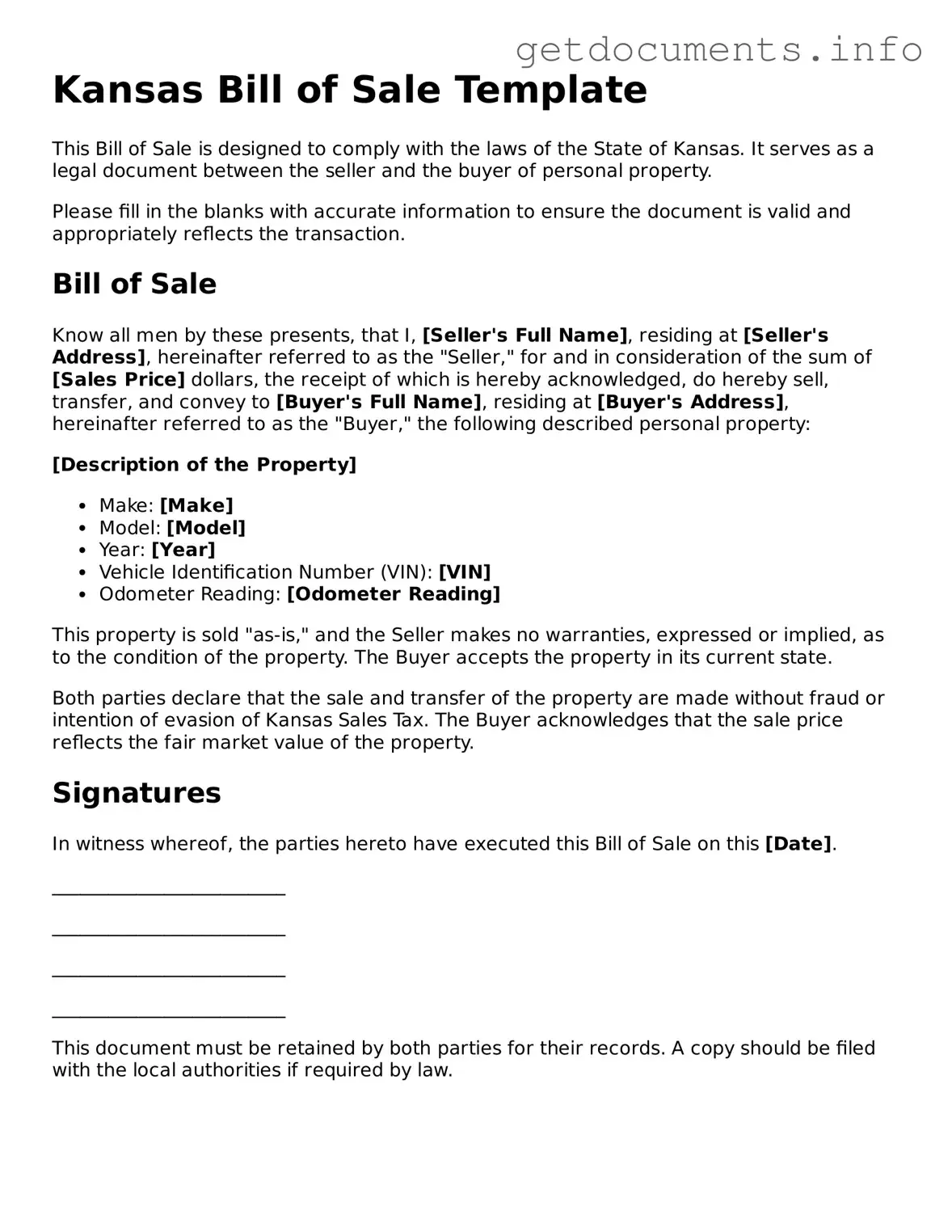Free Bill of Sale Template for Kansas
A Kansas Bill of Sale form is a legal document that serves as proof of the transfer of ownership of personal property from one individual to another. This form is essential for documenting the sale of items such as vehicles, furniture, or other goods, ensuring both parties are protected in the transaction. To get started on your own Bill of Sale, click the button below to fill out the form.
Access Bill of Sale Editor

Free Bill of Sale Template for Kansas
Access Bill of Sale Editor
Got places to be? Complete the form fast
Fill out Bill of Sale online and avoid printing or scanning.
Access Bill of Sale Editor
or
⇩ PDF File
